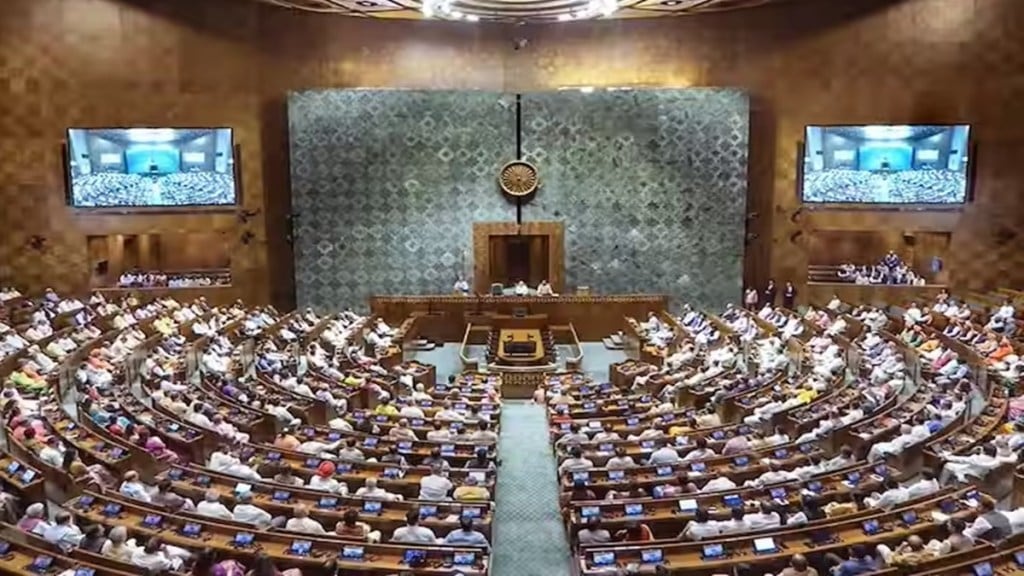Last week’s unnecessarily hastily passed Women’s Reservation Bill in Parliament was described brilliantly by the NCP’s Supriya Sule as a “post-dated cheque”. It remains to be seen if it can be encashed by its proposed date of 2029. If I am slightly cynical, it is because I have witnessed similar Bills being introduced in Parliament on different occasions — 1996, 1998, 1999 and 2008 — with much fanfare, but eventually the Bills quietly lapsed. The linking of the Bill to the delimitation of constituencies can be viewed as either Machiavellian or a masterstroke. Delimitation of constituencies is a Pandora’s Box, which is why the number of seats in the Lok Sabha has remained static for half a century, despite huge variations in population sizes in constituencies. In 1976 and 2002, the scheduled delimitation exercise was quietly postponed because of the government’s fears of the fallout. With delimitation, the proportion of parliament seats from south India would automatically fall even as the share of the BJP-ruled cow belt states would rise. The south has long protested that it cannot be penalised for its progressiveness in practicing family planning.
Media segregation
The process of segregating the media from lawmakers was started in the old Parliament House. The divide has been accentuated in the new one. There are separate entrances and elevators for Rajya Sabha, Lok Sabha, MPs, media and visitors. Functionaries have their offices in different sections and security guards make it difficult to move from one area to another. In contrast, in the old House, scribes strolling down the airy circular corridors would bump into MPs or drop in informally into offices and chambers to meet policymakers without an appointment.
Not on G20 route
Jama Masjid fountains may have been lit up for G20 and landmarks illuminated, but the Indian government did not want the heads of government to visit this part of old Delhi as it would entail a meeting with the masjid’s Shahi Imam. G20 leaders, on the other hand, perhaps wanted to please their Islamic constituents back home with photographs with the Imam. French President Emmanuel Macron and Turkish President Erdogan’s requests to visit Jama Masjid were turned down, ostensibly for security reasons since Jama Masjid was not part of the scheduled programme. Only junior members of certain countries’ delegations got to meet the Imam, according to mosque sources.
Illiberal hearts
Boycotting media outlets and anchors by governments and politicians is normally done subtly. When NDTV was owned by the Roys, BJP spokespersons and ministers stayed away from the channel, but mysteriously reappeared once Adanis bought it. But the INDIA parties have resorted to sledgehammer tactics. It announced a blacklist of 14 TV anchors, reminiscent of VC Shukla’s loyalty list of publications during the Emergency, where those on the D-list, including The Indian Express, were not allotted government advertisements. Since the INDIA measure smacks of illiberalism, something that it accuses BJP of practising, there were red faces among more mature members of the Opposition. Nitish Kumar openly criticised the move. In fact, it was not an impulsive decision, the suggestion first cropped up at INDIA’s Mumbai meet. The list was fine-tuned at a meeting in Delhi, where Raghav Chadha of AAP and Pawan Khera of Congress were at the forefront. Rahul Gandhi gave his go-ahead through his aide, K C Venugopal. Interestingly, the original list had over two dozen names but was whittled down when certain people lobbied to omit names of anchors kind to them personally. A popular anchor from Bihar had both JD(U) and RJD rooting on her behalf. The next move contemplated is to prepare a list of unfriendly channels and stop advertisements to them by CMs and parties in the INDIA alliance.
The boycott alsoexposed the partisan positions of leading journalist associations. The Editors Guild of India, the Press Club of India and the Indian Women’s Press Corps kept silent and did not condemn the concept of a blacklist. While the virtually moribund Broadcast Editors Association sprung to life and passed a resolution decrying the INDIA move.
It’s not me
After my last column, SP MP Javed Khan MP telephoned to protest that I should make it clear in my next column that I have never spoken to him. He was rattled enough to immediately tweet the fact, tagging his party leader Ram Gopal Yadav and Congress media boss Jairam Ramesh. In fact, I have never claimed acquaintance with Khan. Curiously, there is no denial of the basic news in the offending item that two Muslim parties, AIMIM and AIUDF, though old allies of UPA and the Congress respectively, have been kept out of the INDIA front, presumably to appease majoritarian sentiment.
